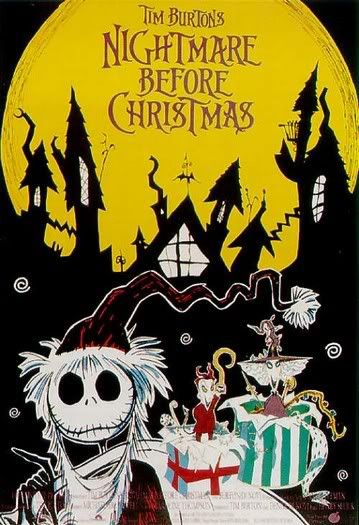by Kristina Lloyd
 I know it’s all tinselly and the lights are so pretty but I’d like to talk about sex with dogs. Or, more specifically, about Nancy Friday whose collection of female fantasies, My Secret Garden, caused such a fuss when it was published in the 70s. Why? Because it was so dirty. For the first time, ordinary women were voicing their lusts, and society was appalled. Many scenarios centred on female submission and rape fantasy, and women, they complained, surely didn’t think like that. In Women on Top, published in the 90s, the submissive fantasies had largely disappeared to be replaced by those of dominatrices, closet lesbians, and a rather high incidence of gals who dreamed of getting it on with the family pet.
I know it’s all tinselly and the lights are so pretty but I’d like to talk about sex with dogs. Or, more specifically, about Nancy Friday whose collection of female fantasies, My Secret Garden, caused such a fuss when it was published in the 70s. Why? Because it was so dirty. For the first time, ordinary women were voicing their lusts, and society was appalled. Many scenarios centred on female submission and rape fantasy, and women, they complained, surely didn’t think like that. In Women on Top, published in the 90s, the submissive fantasies had largely disappeared to be replaced by those of dominatrices, closet lesbians, and a rather high incidence of gals who dreamed of getting it on with the family pet.
I don’t know where Nancy was getting her data from but the implication was that, thanks to feminism, women’s fantasies had suddenly got healthier. OK, so doing it with Fido might not sound that healthy but it does neatly evade the gender politics inherent in your more average hetero, human shag.
Today, there’s plenty of evidence to show that fantasies of female submission are still immensely popular. A fem sub fantasy can be anything from a good, hard kiss against a wall, to a mild spanking, to a hardcore gangbang in a fully-equipped dungeon. What all the scenarios have in common is that he, our object of lust, is the boss. We can flip this notion on its head and declare it’s actually the woman calling the shots: as the fantasist, she’s in control of events; as a role-player in BDSM games, she probably has a safeword to mean ‘stop’. This might be true but, for me, it misses the point. And the point is: many women get off on thoughts of being dominated by a man. Or by a couple of them. Or by a whole, badly-tattooed football team in a massive hot tub. (Oops, there goes another of my secrets.)
Not surprisingly, in our postfeminist age, this can make us uneasy. Our fantasies seem to be in direct conflict with our real-life hopes and expectations. But consider the inequalities of the society we’ve been brought up in, and it’s easy to see why these fan tasies are so common. In our culture, nice girls don’t, and dreams of being overpowered absolve us of responsibility and guilt. The fantasy dom is also extremely useful because he knows exactly what we want and he’s staying in control – of us and himself. We don’t have to ask for a thing. We don’t have to try and please. Take a look at him. See? He’s already pleased. Very. And all you’ve done is show up. Heck, what a relief.
tasies are so common. In our culture, nice girls don’t, and dreams of being overpowered absolve us of responsibility and guilt. The fantasy dom is also extremely useful because he knows exactly what we want and he’s staying in control – of us and himself. We don’t have to ask for a thing. We don’t have to try and please. Take a look at him. See? He’s already pleased. Very. And all you’ve done is show up. Heck, what a relief.
The desire to be desired is, I believe, at the heart of erotic fantasy. We can imagine ourselves to be so goddamn gorgeous that our man, Mr Slightly-Twisted Alpha (back off sister, he’s mine), can’t control his base, animal instincts. He wants it, and he wants it now, and our cries of ‘No, stop!’ don’t mean jack shit to him. My imagined man is seldom someone I’d want to have dinner with. But then it’s not his mind I’m after. It’s his smouldering masculinity, his arrogance, his charisma, his cracking pair of thighs. The dominant male archetype is something we’ve all been brought up with, inside the home and out. He’s there in film, books and TV. He’s Tarzan, he’s daddy, he’s the bogeyman in the dark. He’s the bank manager, he’s Shakespeare, he’s Heathcliff, he’s God. He is, in short, the product of centuries of male social superiority. Small wonder he’s so hard to knock off the top spot.
The fem sub scenarios I like to read and write about are fairly dark, grubby acts tinged with danger. I’m not into elaborate, ritualised behaviour or heavy equipment. I struggle to read fiction where the bloke is referred to, without irony, as 'master', 'sir' or, heavens above, 'He'. This stuff leaves me cold. I can’t see the characters for the role-play. Its world is artificial. I prefer my fem subs to be ordinary, believable women who are perhaps uneasy about what butters their muffins. I want conflict, internal and external. I’ve written about rape fantasy. Sometimes it’s called ravishment, being taken, forced submission or consensual non-consent. It sounds better phrased that way but it amounts to the same thing: he made me do it, and it was raw, scary, debasing, sweaty and hot. (And here I'm obliged to add, for the hard of thinking (Wow, you made it this far? Here, have a biscuit.): no woman wants to be genuinely raped. As a concept, it's really not that tricky to comprehend.)
 In Asking for Trouble, my second novel, Beth agrees to play a game with Ilya, a virtual stranger, in which they explore fantasy. Reluctantly, Beth admits to having rape fantasies, making it clear it’s fantasy. They agree to a safeword but the stakes are high: not only does the safeword stop a particular sex act, it also ends the relationship, no questions asked. In one scene, Beth and Ilya are angry. Ilya wants to fuck. Beth doesn’t. ‘Well then,' says Ilya. 'This is shaping up to be a pretty decent rape fantasy, isn’t it?’ He squashes her against a wall, his hand clamped to her mouth. Beth, whether she wants to or not, is unable to utter the safeword.
In Asking for Trouble, my second novel, Beth agrees to play a game with Ilya, a virtual stranger, in which they explore fantasy. Reluctantly, Beth admits to having rape fantasies, making it clear it’s fantasy. They agree to a safeword but the stakes are high: not only does the safeword stop a particular sex act, it also ends the relationship, no questions asked. In one scene, Beth and Ilya are angry. Ilya wants to fuck. Beth doesn’t. ‘Well then,' says Ilya. 'This is shaping up to be a pretty decent rape fantasy, isn’t it?’ He squashes her against a wall, his hand clamped to her mouth. Beth, whether she wants to or not, is unable to utter the safeword.
This is a key moment. Ilya has denied Beth the right to speak. He has taken her out of the game and his power has become purely physical. Language is political. Language makes us. Language separates us from animals. When Ilya silences Beth, they are no longer equals in the game - or in the world - and fantasy has become too realistic.
In the book, I really wanted to make this point. I wanted to highlight the importance of distinguishing fantasy from reality. Sure, there are overlaps for us all but in this instance, the line has to be clear. Ilya, in using his muscle against Beth, is effectively stealing her fantasy by twisting it in something else.
In our culture, female sexuality has been silenced for too long. Feminism has finally given women a voice, allowing us to articulate our desire (even if sometimes that amounts to little more than ‘uh, uh, yeah’). It’s crucial we speak and allow ourselves to explore and enjoy our fantasies, even – perhaps especially – the dark, troubling stuff. Our desire has been denied and distorted for centuries. The last thing we need to do is silence ourselves.
I’m an enlightened, independent woman with a filthy, overactive imagination. I consider myself a feminist. Why wouldn’t I? And I’m happy to say (and I’ll say if for you if you’re shy): I love a forced submission. I love those arrogant bastards.
Anyone else agree? Anyone else say ‘uh, uh, yeah’?
Kristina Lloyd
- Asking for Trouble has just been reissued in the US alongside Black Lace releases, Dark Designs by Madelynne Ellis and Sex and Shopping. Scroll down a couple of posts to enter our amazing giveaway competition, featuring these 3 books and many, many more!
- To read more about Asking for Trouble, click here. To read an extract, click here.
- The image at the top of this post is copyright Kristian Purcell and is used here with kind permission of the artist. Take a look at Kristian's website. His work is lovely.











































 I’m not sure I’m going to be any good at this, but I thought I might pitch in because it’s suddenly dawned on me that I have a reprinted book published today in the
I’m not sure I’m going to be any good at this, but I thought I might pitch in because it’s suddenly dawned on me that I have a reprinted book published today in the 